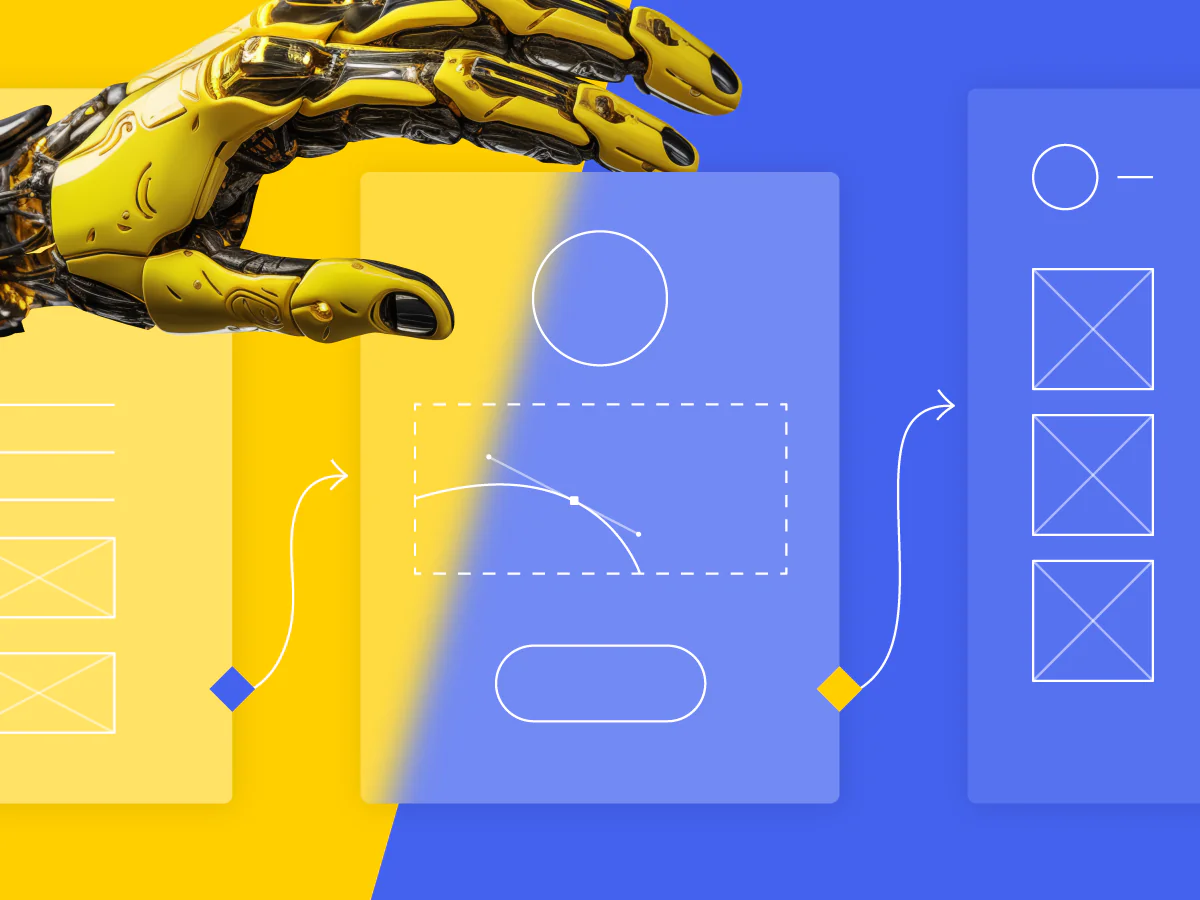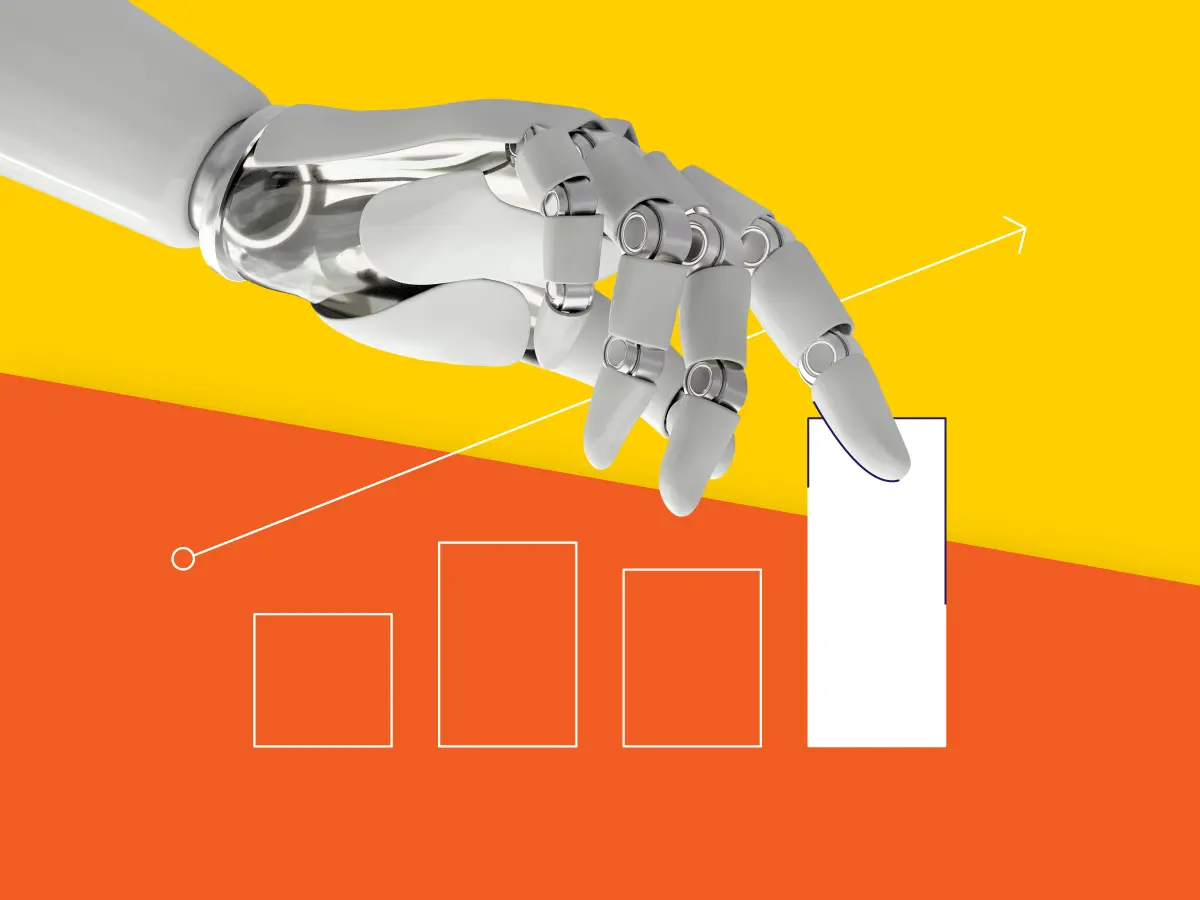The essence of a memorable shopping experience often boils down to a term we frequently encounter yet might not fully grasp — User Experience (UX).
Artificial Intelligence (AI) is a force reshaping eCommerce. It helps you understand your customers better and cater to their needs more intuitively. AI can be a tool so perceptive that it not only knows what your customers want but also predicts their needs even before they do.
So, a key question is: How can you harness the power of AI to not just meet, but exceed user expectations?
The answer lies in exploring AI’s capabilities to craft a UX that’s not just functional but delightful. UX design with AI promises more than just enhanced interfaces. It leads to a significant leap in conversions and sales, transforming browsers into loyal customers.
Understanding UX in eCommerce
User Experience (UX) in e-commerce concerns how customers feel when interacting with your website. It’s a blend of design, functionality, and the emotional journey your customers embark on. UX can be the deciding factor between a sale and a visitor bouncing off to a competitor.
UX is often shaped by several factors. From selecting a suitable hosting provider to installing extensions on your platform. This means that even backend decisions contribute to the overall UX of your online store.
Common UX challenges in eCommerce
- Overwhelming choice: too many options or cluttered interfaces can lead to choice paralysis.
- Inconsistent experience across devices: lack of a uniform experience on various devices can alienate segments of your audience.
- Complicated checkout processes: a complex or lengthy checkout can deter customers from completing their purchases.
- Poor search functionality: if customers can’t find what they’re looking for quickly, they might give up and leave.
- Lack of personalization: no tailoring to individual preferences can make your site feel impersonal and generic.
In online shopping, every click and scroll matters. User Experience (UX) becomes the cornerstone of customer interaction and satisfaction. At Alva Commerce, we understand the pivotal role UX plays in your online success. Our comprehensive UX/UI audit is designed to meticulously evaluate your website.
We delve deep into understanding your customers’ journey. Our team identifies any hurdles in the checkout process. We enhance search and personalization to make your site a welcoming space for your customers.
Choosing Alva Commerce for your UX/UI audit means you’re actively tackling common website challenges. By enhancing the shopping experience with our help, you’re lifting your brand to new heights of customer satisfaction and loyalty. It’s a step towards ensuring that your website resonates with your audience.
The rise of AI in eCommerce
Artificial Intelligence in UX design is rapidly transforming the way online businesses operate. It is making them smarter, more efficient, and incredibly customer-focused. The role of AI in eCommerce has grown from a novel innovation to a core component of competitive strategy.
Enhanced customer service
AI-powered chatbots provide instant. They provide 24/7 customer service, handle queries, and offer solutions in real time.
Personalized shopping experiences
AI analyzes customer data to offer personalized product recommendations. It can tailor content, significantly improving the shopping experience.
Smarter inventory management
AI algorithms can help you predict demand and manage stock levels. You can also use such tools to automate some website management tasks. Learn more about AI inventory management (додати посилання на статтю про AI inventory management) in our dedicated article.
Efficient marketing
With AI, marketing becomes more targeted and effective. It can analyze customer behaviors and preferences to craft more relevant campaigns.
The potential of AI tools for UX design is vast and varied. It’s about creating an ecosystem that’s proactive in shaping a delightful shopping experience.
Personalization: Tailoring the eCommerce experience
Personalization means making your customers feel like your online store was built just for them. This is where Artificial Intelligence (AI) steps in. AI-driven personalization is about delivering unique shopping experiences to each customer. It’s based on their preferences, browsing history, and shopping behavior.

How AI drives personalization based on past data
Examples of AI-driven personalization
- Product recommendations
Imagine a customer who previously bought running shoes from your store. Next time they visit, AI can propose running apparel, sports accessories, or even nutrition supplements. - Personalized emails
AI takes email marketing to a new level. Instead of generic promotions, customers receive emails with products and offers that align with their interests. For instance, a customer who browsed kitchenware might get an email showcasing your latest range of cookware sets. - Seasonal and contextual recommendations
AI is smart enough to factor in seasonal trends and current events. For example, during winter, it might recommend warm clothing.
Personalization, powered by AI and UX design, is a step towards building a deeper, more meaningful relationship with your customers. Check out our blog article for more insights on AI personalization solutions for Magento.
Intelligent search and navigation
Navigating an online store can sometimes feel like searching for a needle in a haystack. AI can transform the search and navigation experience into a smooth and intuitive journey.
As much as 52% of consumers abandon their entire cart and go elsewhere if they cannot find one item (Google). That’s exactly why search is crucial for your online store. UX design with AI can help you ensure that customers find exactly what they’re looking for, and even things they didn’t know they needed.
How AI enhances search functionality
Ideas of using AI for guiding product discovery
- Contextual filters and sorting
AI can customize filters and sorting options based on the user’s past behavior and preferences. For instance, a customer who frequently buys eco-friendly products might see ‘sustainability’ as a prominent filter. - Personalized product recommendations in search
Alongside search results, AI can showcase personalized product recommendations. In this way, it nudges customers towards items they are likely to purchase.
AI’s contribution to search and navigation significantly elevates the user experience. It’s like having a knowledgeable sales assistant who not only knows the store inside out but also understands each customer’s unique taste and preferences. This level of intelligent assistance in search and navigation is crucial in driving customer satisfaction and, ultimately, sales.
AI in chatbots and customer support
AI-powered chatbots have emerged as a pivotal tool for instant service. These virtual assistants provide immediate, personalized, and scalable interactions. They ensure that customers feel heard and valued, anytime and anywhere.

How AI enhances customer support
Ideas for AI chatbot implementations
- Shopping assistants
Some sites use chatbots as personal shopping assistants. For example, a fashion retailer’s chatbot might ask customers about their style preferences and occasion needs and then suggest outfits accordingly. - Order tracking and updates
Chatbots can provide real-time updates on order status and delivery. This keeps customers informed and reduces the workload on customer service teams. - Feedback collection
Chatbots can proactively ask for feedback post-purchase or interaction. This aids in gathering valuable customer insights for service improvement. - Problem resolution
In instances of wrong or damaged products, chatbots can guide customers through the return or exchange process. They make this process seamless and hassle-free. - Up-selling and cross-selling
By understanding customer preferences, chatbots can recommend additional products. It’s an effective way to increase the average order value.
AI chatbots in eCommerce enhance customer experience and drive efficiency. By providing immediate, accurate, and personalized support, they play a crucial role in building customer loyalty and trust.
AI and UX design integration
The synergy between AI and UX lies in their shared goal: to create an intuitive, efficient, and satisfying experience for the user. However, the key to success is integrating AI into UX design in a way that feels natural and unobtrusive.
Roadmap for integrating AI into your UX design
-
Start with user needs
Understand your users’ needs and behaviors first, and then think about how AI can enhance their experience. The integration should always be user-centric. Explore the tools that will help you address user’s needs.
-
Integrate the tools
AI should blend seamlessly into the design. Configure the tools to ensure that they seem to be inherent to your website. For example, AI-driven recommendations should feel like a natural part of the browsing experience, not an intrusive element.
-
Maintain transparency and control
Users should know when they are interacting with AI and have control over their choices. For instance, if a user is conversing with a chatbot, it should be clear that it’s an AI assistant.
-
Test and iterate
Integrate AI gradually and keep testing how users respond to these changes. Continuous iteration based on user feedback ensures that AI enhances rather than hinders the UX.
By thoughtfully integrating AI for UI/ UX design, you can create more engaging, efficient, and personalized experiences for your customers. This integration should not aim to replace human touch with technology. It’s rather about using AI to complement and elevate the human aspects of shopping experiences.
Conclusion
AI is the unseen force that can anticipate customer needs, simplify navigation, and provide instant, helpful support. It ensures that understand your customers on a deeper level and cater to their needs with precision and care.
Investing in AI tools for UX design is a strategic move toward placing your customer at the center of your business model. It’s about enhancing the customer experience at every touchpoint. Thereby not only increasing satisfaction but also boosting sales and customer loyalty.
For businesses looking to embark on this journey, the integration of AI in UX design requires a thoughtful approach and expert guidance. This is where Alva Commerce is your reliable partner.










